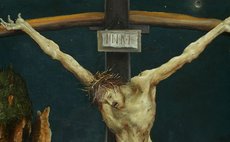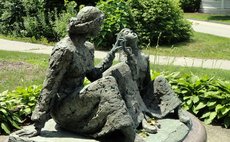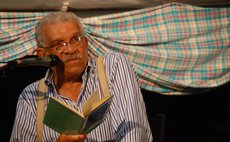The beauty of human life
Tell me not, in mournful numbers, Life is but an empty dream! For the soul is dead that slumbers, And things are not what they seem>
Henry Wadsworth Longfellow
Most of us fail to capture the beauty of life either because we are blind to all that is good and beautiful or because we are looking for it in the wrong places. We seek it in the works of our own hands. But it is there before us quite independent of our own initiative. It sounds loudly, but we will not hear if because we are distracted by so many inconsequential things.
Life is for living. It is not for dreamers and those who would shun reality. Life is for those who seek to fashion their existence, respect the world in which the live, and ,in whatever condition they may be, seek to obtain the best out of their lives. In 'As You Like It' ,William Shakespeare wrote:
Sweet are the uses of adversity, Which like the toad, ugly and venomous, Wears yet a precious jewel in his head. And this our life, exempt from public haunt, Finds tongues in trees, books in the running brooks, Sermons in stones and good in everything> .
There is beauty in nature. Unfortunately, we often fail to discern this. But we ought to seek beauty not only in the things around us but above all in people, many of whom we might tend marginalize or write off as unworthy of any sort of regard or respect.
We need to behold the human person with a certain reverence. Recognition needs to be given to the one who stands before us as God's work of art, God's masterpiece. We insult God's creative act when we fail to honour those whom he has given us as our brothers and sisters. We are often charmed by, and drawn to, those who are powerful or have something to offer. Our heroes are those who are in the limelight, those who entertain the crowd, those who dazzle the masses. These are the people we idolize and revere.
Someone has said," The best time to watch a champion is when he is being whipped." My father died just eight months short of a hundred years. The best thing I ever witnessed of him occurred one day when I visited him at the Green Hill Retirement Home at Morne Daniel. When I arrived, he had left his room. He was walking alone holding on to the railings of the porch. He was virtually dragging himself along, crippled as he was by arthritis. Looking at me, he exclaimed with a smile, "I am showing my strength!"
Often there are people who have been apparently insignificant. We do not talk about them. We prefer to forget them. Yet these are the very people who teach us much about the beauty of life. In a very meaningful way, they have mastered the secret of human life.
Throughout the years, I have often thought of my former school-mate at the Dominica Grammar School, Ronnie Didier. We played soccer and cricket together. He was as active as any other student on the field of sport. But, above all, he was a brilliant actor. How can I forget his magnificent performance in the drama based on Charles Dickens' novel, 'A Tale Of Two Cities'? I reckon that he was one of the best actors I knew at the Dominica Grammar School.
But then he developed mental illness. While I was overseas, I heard that he was mentally challenged. When I performed my priestly ministry in Antigua from January 1966 to September 1969, he was a patient at the Psychiatric Unit. I would visit him. We would engage in conversation about the old days. But he usually said just a few words.
One day I paid him a visit. He had not taken his medication. He was completely silent. He uttered not a word. I was very saddened. When I told him goodbye, he took my hand and he kissed it. This was the only time he ever did that. I understood.
When I returned to Dominica, he was back home. I would visit him. Sometimes I met him in town. I was always happy to meet him. In his quiet simplicity, there was something charming about him. In spite of everything, he seemed to be quite at peace. I am very pleased to have known him. He has taught me much about the mystery of human life.




